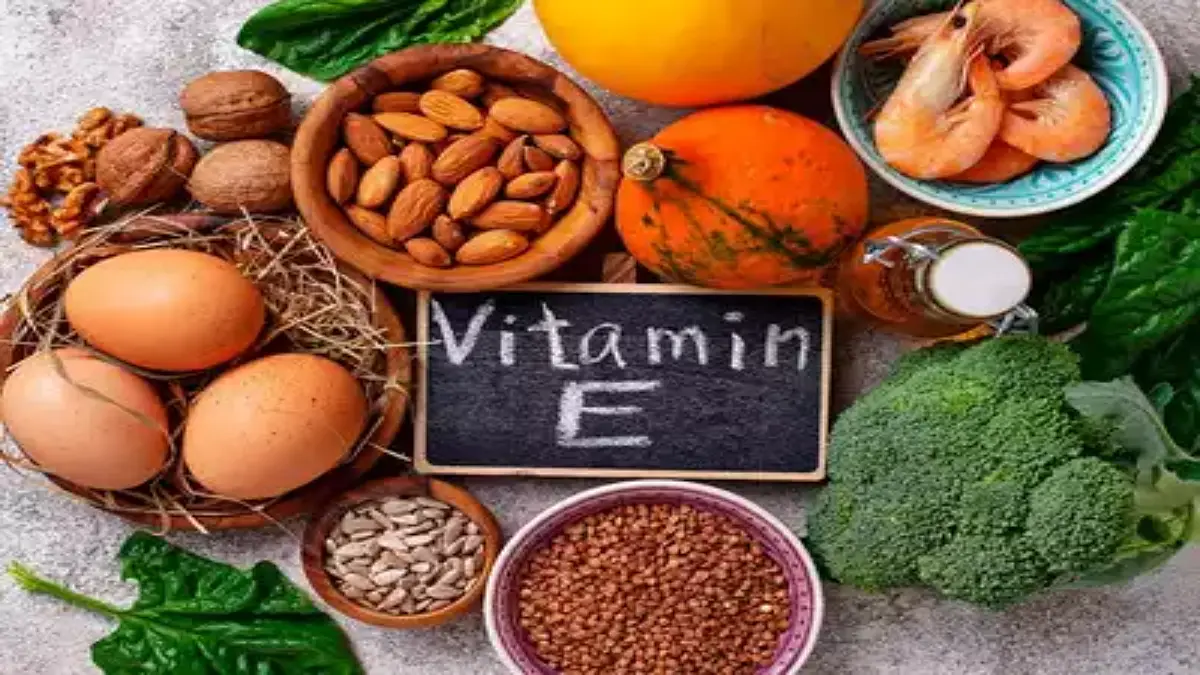Table of Contents
Vitamin E
In a world bombarded by pollutants and stressors, maintaining optimal health requires a vigilant approach. Among the arsenal of nutrients essential for our well-being, Vitamin E stands out as a powerful antioxidant, safeguarding our bodies against the onslaught of free radicals. Let’s delve into the significance of this vital nutrient and explore how it contributes to our overall health:
Antioxidant Defense:
Vitamin E serves as a shield, combating the harmful effects of free radicals generated through exposure to environmental toxins, cigarette smoke, and even radiation. By neutralizing these free radicals, it helps prevent cellular damage and reduces the risk of chronic diseases such as cancer and cardiovascular ailments.
Vision Support:
Our eyesight is precious, and Vitamin E plays a crucial role in maintaining healthy vision. As an antioxidant, it protects the cells in our eyes from oxidative stress, thus potentially reducing the risk of age-related macular degeneration and cataracts.
Boosting the Immune System:
A robust immune system is our body’s first line of defense against infections and illnesses. Vitamin E contributes to immune health by enhancing the activity of immune cells, thereby bolstering our body’s ability to fight off pathogens and maintain overall immunity.
Skin Nourishment:
The skin, being the largest organ of our body, requires ample nourishment to stay healthy and radiant. Vitamin E, with its antioxidant properties, helps in maintaining skin integrity by neutralizing free radicals that can cause premature aging and skin damage. It also aids in wound healing and provides protection against UV radiation, promoting youthful and glowing skin.
Some natural sources through which we can incorporate Vitamin E into our diet:
Meats and Eggs: Rich sources of Vitamin E include organ meats like liver and egg yolks. Incorporating these into our diet ensures a steady supply of this essential nutrient.
Leafy Green Vegetables: Spinach, broccoli, and other leafy greens not only provide a plethora of vitamins and minerals but also serve as excellent sources of Vitamin E, promoting overall health and well-being.
Nuts and Seeds: Almonds, sunflower seeds, peanuts, and hazelnuts are packed with Vitamin E. Snacking on these nutritious treats or incorporating them into meals adds a delightful crunch along with a boost of antioxidants.
Healthy Oils: Opting for healthy oils such as extra virgin olive oil, sunflower oil, and soybean oil not only enhances the flavor of dishes but also ensures a good intake of Vitamin E.
Whole Grains: Unprocessed cereals and whole grains like wheat germ are also rich sources of Vitamin E. Including these in our meals provides a wholesome dose of nutrients essential for optimal health.
While Vitamin E deficiency is rare, certain conditions such as cystic fibrosis can lead to impaired absorption of fats, resulting in deficiency. Additionally, newborns may be at risk of deficiency if they are born prematurely before receiving sufficient Vitamin E from their mothers.
Vitamin E emerges as a crucial player in maintaining our health and vitality. By incorporating Vitamin E-rich foods into our diet and adopting a healthy lifestyle, we can harness the protective power of this antioxidant and pave the way towards a healthier, happier life.
for more health tips clickhere
